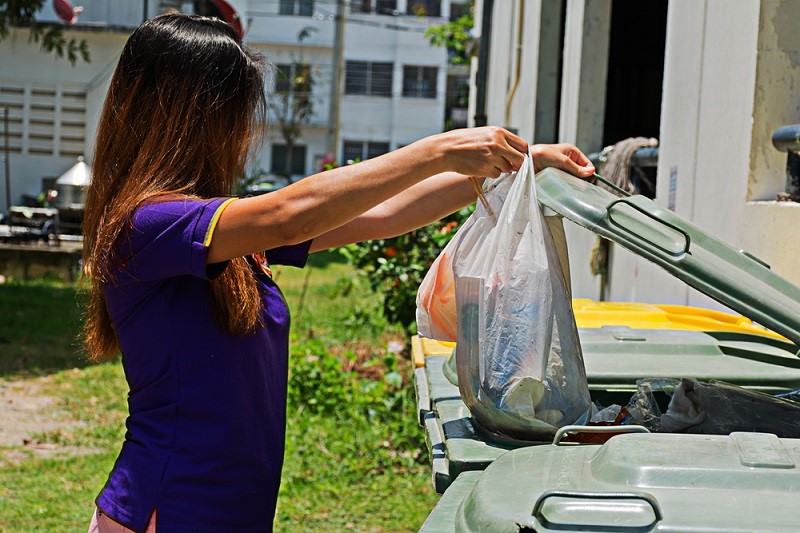It is estimated that an average house can produce anywhere from 2 to 5 pounds of waste each day or even as much as 1.5 tonnes of waste each year. Multiply this by the number of people and the amount of waste generated is enormous. This does not take into consideration business wastes or industrial waste, the volume of which is much larger. Each house owner can do his little bit to reduce the impact on the environment by efficient and safe waste management practices.
Prevent waste
As in other areas, prevention is better and one can reduce the output of waste simply by sensible planning and purchase practices. One way of waste management is to reduce consumption of packaged products or other products that produce plastic waste. It takes some effort, but with proper planning one can pick only those items that are required and buy these in bulk, preferably in recyclable packaging. Carry along a bag to bring home purchases.
It may be a normal practice these days to use throw away wipes and cleaning materials that ultimately add to the pile of waste. It is a better idea to use towels, cloth napkins and sponges for everyday cleaning purposes. Instead of using plastic bags to store food or other materials use durable plastic containers. They last longer and are easily recycled. Instead of using throw away batteries, use rechargeable batteries.
Reuse and Recycle
People do tend to throw away things like used appliances, clothes, bed sheets, electronic products, computers and even furniture. A little care is all it needs to see that these are reused. You can donate to charity, give it away to people who need it or hand them over to specific recycling agencies instead of dumping them in garbage.
Food is one thing that is often thrown away. People do tend to have a habit of storing food in their refrigerators and then dumping such food after some time. Plan sensibly to reuse leftovers and ensure that food is never stored in the fridge for more than two days. Food that has gone bad can be put into the ground to fertilize plants. Talking of plants and trees, your backyard also generates twigs, wood and leaves. Instead of burning such waste they can be composted to provide fertilizer.
Safe Disposal
- Electrical and electronic appliances often have lead and mercury that are dangerous for landfills. Fluorescent lamps also contain mercury that is hazardous. It is best to hand over these equipment to recycling companies or to people who might find use for such devices.
- Lead acid batteries are toxic to the environment and should never find their way to landfills. Show your care by exchanging batteries or selling them to scrap battery buyers.
- Hazardous materials such as paints, motor oil, thinners and even cleaning chemicals contain toxic heavy metals and organic chemicals. It is best to segregate these and hand them over to a suitable disposal service.
- Construction waste is generated when you build a house or when you are carrying out renovations. It is best to hire the right size bin and collect all such debris. Contract with the waste pick up service to cart away the full bin and put another one in place. There is residential waste pick up services that make it easy for you to manage and dispose off construction waste.
Talking of residential waste pickup services, you will find them immensely helpful in your waste management efforts. A proper service offers waste pickup, recycling service, yard waste pick up, bulk waste pick up, food and organic waste pickup and hazardous waste pickup facilities. Engage them and home waste management becomes an easy process.

